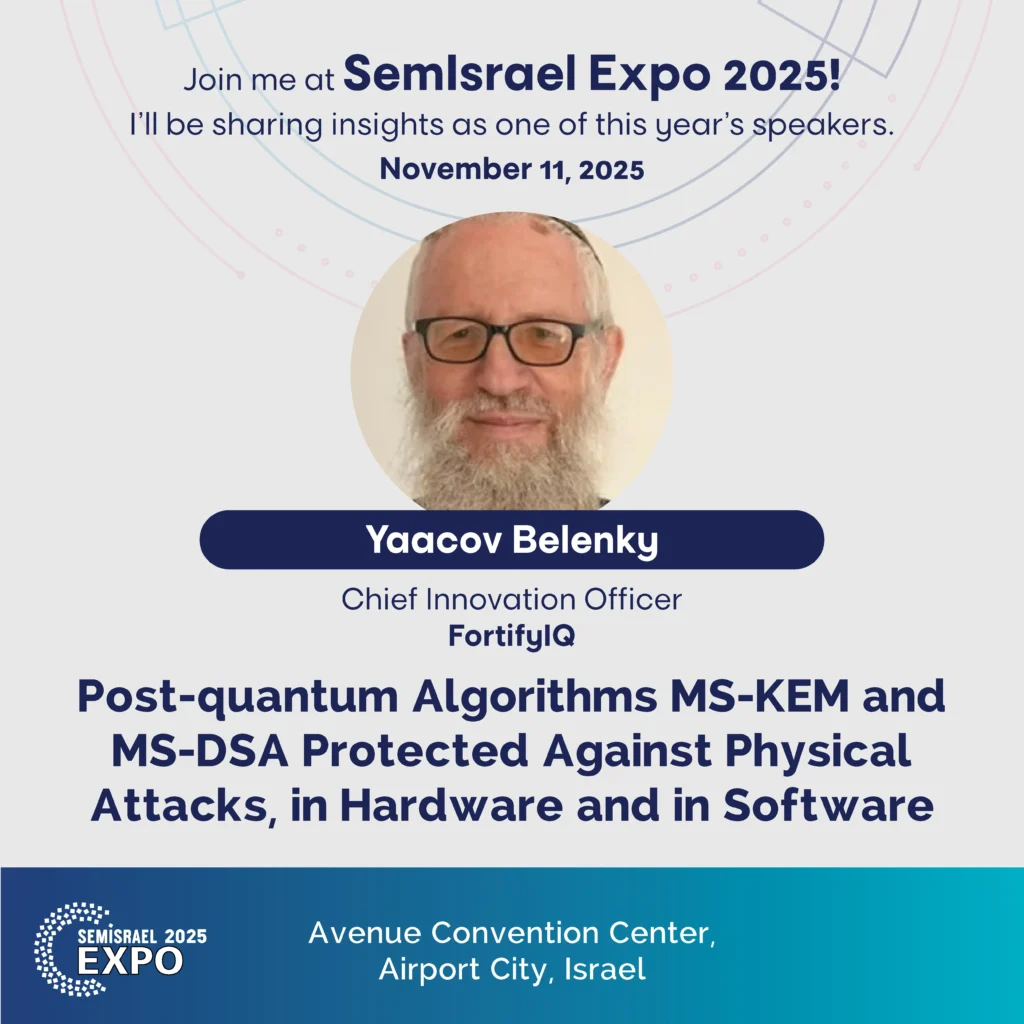SemiIsrael Expo 2025 - Post-quantum Algorithms MS-KEM and MS-DSA Protected Against Physical Attacks,
in Hardware and in Software
November 1, 2025

Events
Share:

Yaacov Belenky,
Chief Innovation Officer
Short Bio
Yaacov was born in the USSR, studied mathematics there, and immigrated to Israel in 1987. Since 1998, he has been working in security, primarily on the hardware level, initially for NDS (which Cisco later acquired), and later (2017) on Intel’s red team. In 2020, he joined FortifyIQ as Chief Innovation Officer. Since 2013, his focus has been physical attacks and algorithmic protections against them. He has 30 granted patents and 6 academic papers, all security-related.
Join me
November 11 at the SemIsrael Conference, Airport City, Israel 15:10-15:30 in the IP and Cores Track
Short Abstract
Post-quantum algorithms ML-KEM and ML-DSA, based on Crystals Kyber and Crystals Dilithium, respectively, have been recently standardized by NIST in FIPS 203 and FIPS 204, and are rapidly being adopted worldwide. Unfortunately, these algorithms are extremely prone to side-channel attacks, including side-channel attacks that require only one trace. Masking-based approaches to their security have a significant cost in performance, gate count, and power consumption. In addition, many practical attacks on these masking-based protected implementations have been published in academic papers.
FortifyIQ has developed a unique algorithmic protection against physical attacks for both ML-KEM and ML-DSA, which is not based on masking and has a significantly better PPA than masking-based protections.
It switches the calculations into a large redundant domain, following the same design principles as FortifyIQ’s AES protection schemes, which have passed AVA.VAN.5 evaluation by a leading Common Criteria lab, and are deployed in millions of devices. The protection extends to operations such as composition and decomposition, which are known to be easy targets for side-channel attacks.
FortifyIQ offers a combined hardware + firmware solution. For already produced devices or when limitations prevent the use of this solution, FortifyIQ offers software libraries for both ML-KEM and ML-DSA in which the same algorithmic protection is implemented. Both products use the same unified API.